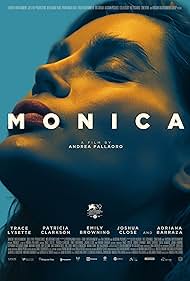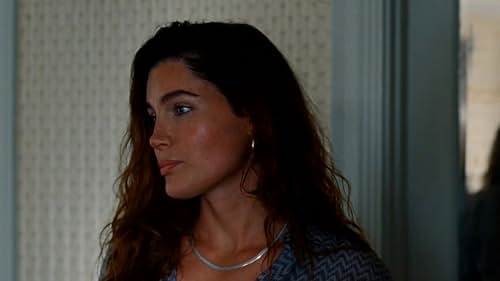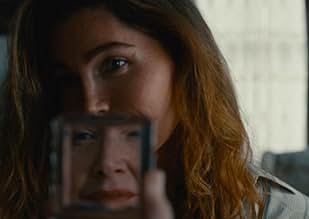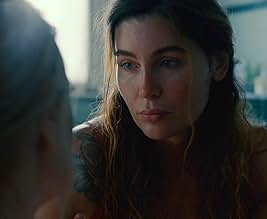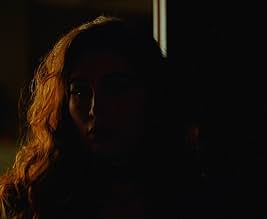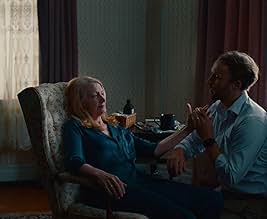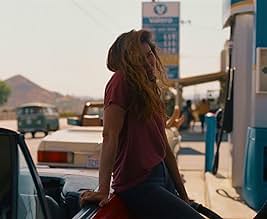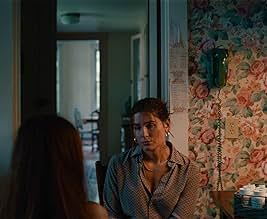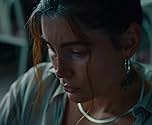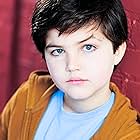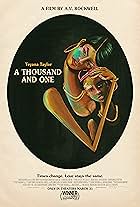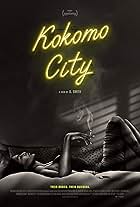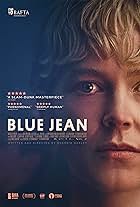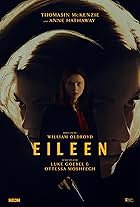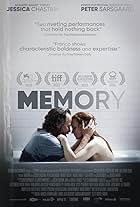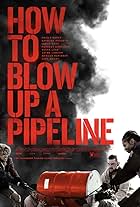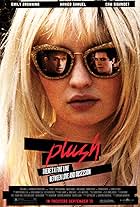IMDb RATING
6.3/10
1.5K
YOUR RATING
The intimate portrait of a woman who returns home to care for her dying mother. A delicate and nuanced story of a fractured family, the story explores universal themes of abandonment, aging,... Read allThe intimate portrait of a woman who returns home to care for her dying mother. A delicate and nuanced story of a fractured family, the story explores universal themes of abandonment, aging, acceptance, and redemption.The intimate portrait of a woman who returns home to care for her dying mother. A delicate and nuanced story of a fractured family, the story explores universal themes of abandonment, aging, acceptance, and redemption.
- Awards
- 5 wins & 17 nominations
Vladimir John Perez
- Car Repairman
- (as Vladimir Perez)
Bobby Easley
- Trucker
- (as Bobby Easly)
Bryant Bentley
- Mechanic
- (as Bryant Lewis Bentley)
Chelo
- Hairdresser
- (as Chelo Acosta-Conley)
Mark Angel
- Mechanic
- (uncredited)
- Director
- Writers
- All cast & crew
- Production, box office & more at IMDbPro
Storyline
Did you know
- TriviaAnna Paquin was attached early on for a role, but she became unavailable and was replaced by Emily Browning.
- Alternate versionsThe UK release was cut, the distributor chose to make a cut to a reference to erotic asphyxiation in order to obtain a 15 classification. An uncut 18 classification was available.
- SoundtracksBizarre Love Triangle
Performed by New Order
(Stephen Morris (as S. Morris) - Bernard Sumner (as B. Sumner) - Peter Hook (as P. Hook) - Gillian Gilbert (as G. Gilbert))
Published by Vitalturn Co. Ltd.
Sub-published in Italy by Universal Music Publishing Ricordi Srl.
(P) 1986 Warner Music UK Ltd.
Under license from Warner Music Italy Srl.
Featured review
"Monica"
"Monica" is a portrait of a woman who returns home to the Midwest for the first time in 20 years to confront the wounds of her past. Reconnecting with her mother Eugenia (Patricia Clarkson) and the rest of her family for the first time since leaving as a teenager, Monica (Trace Lysette) embarks on a path of healing and acceptance. Monica is reunited with her family for the first time since her youth. Uncertain if her mother will recognize her, Monica moves into her childhood home, hoping to heal the wounds of the past and forge a new path of forgiveness and acceptance. Exploring the universal thematic dichotomies of aging and beauty, rejection and alienation, the film details Monica's world and state of mind, the pain and fear, the needs and desires, of a woman whose journey ultimately illuminates the human condition. The film delves into Monica's internal world and state of mind, her pain and fears, her needs and desires, to explore the universal themes of abandonment and forgiveness.
Monica is a film about family, abandonment, and acceptance. It's also a film that centers a Trans-woman character. Monica has been on her own since her mother dropped her off at the bus station as a teenager with only 5 minutes to spare and the message, 'I can't be your mother anymore'. We don't follow Monica during those early teen years, and that time is only hinted at. We meet her as an adult, but one that still carries that wound of early abandonment that we get the first taste of very early in the film when she calls Jimmy (Joshua Close). Jimmy is a man we never see who we only know through her attempts to contact him, but we see and hear the need to try and keep him in her life, to not be left behind by him. Then Monica receives a call she never thought she'd receive, not from Jimmy, but from the sister-in-law she never met, asking her to come back home to help care for her mother, who's losing her memory along with her health. The film never denies how difficult it's for Monica to return to the scene of her trauma but also doesn't deny her the joy of forging new relationships with her niece and nephews.
It also doesn't give an easy resolution to her relationship with her mother, whom she now has to mother, who denied her mothering when she still needed it. Her mother doesn't recognize her right away like she secretly hoped. Though that may have been the only way for them to find a healing place, because Eugenia is not the same woman anymore that abandoned her, and that might be a way that helps Monica heal a bit from the pain of abandonment and finally call out Jimmy. And in the end, Eugenia does accept Monica as family, whether she finally recognized Monica as her daughter is not fully answered, but we think she did, even if it's not voiced. The film does a good job of balancing the moments of joy with moments of sadness. From the topic, you might not expect there would be laughs, but there are plenty during certain scenes in the film particularly at one move during a solo dance scene. There are also moments that just makes us smile while watching. The film ends with a scene of Monica's nephew signing the US National anthem at school graduation. It's a moment of healing and catharsis.
When your mother becomes sick, this confront you with your past and the psychological effects of abandonment. Treading between the interior and exterior, the emotional and physical, Monica explores the complexities of self-worth, the deep-rooted consequences of rejection and the lengths we go to heal our wounds. Through a cinematic language that stems from the juxtaposition of the aesthetics of intimacy and alienation, the film delves into the emotional and psychological landscape of Monica to reflect the precarious nature of self-identity when challenged by the need to survive and ultimately transform. The dialogues are unintelligent, clumsy, and brainless. The ending feels overly rhetorical.
Written by Gregory Mann.
"Monica" is a portrait of a woman who returns home to the Midwest for the first time in 20 years to confront the wounds of her past. Reconnecting with her mother Eugenia (Patricia Clarkson) and the rest of her family for the first time since leaving as a teenager, Monica (Trace Lysette) embarks on a path of healing and acceptance. Monica is reunited with her family for the first time since her youth. Uncertain if her mother will recognize her, Monica moves into her childhood home, hoping to heal the wounds of the past and forge a new path of forgiveness and acceptance. Exploring the universal thematic dichotomies of aging and beauty, rejection and alienation, the film details Monica's world and state of mind, the pain and fear, the needs and desires, of a woman whose journey ultimately illuminates the human condition. The film delves into Monica's internal world and state of mind, her pain and fears, her needs and desires, to explore the universal themes of abandonment and forgiveness.
Monica is a film about family, abandonment, and acceptance. It's also a film that centers a Trans-woman character. Monica has been on her own since her mother dropped her off at the bus station as a teenager with only 5 minutes to spare and the message, 'I can't be your mother anymore'. We don't follow Monica during those early teen years, and that time is only hinted at. We meet her as an adult, but one that still carries that wound of early abandonment that we get the first taste of very early in the film when she calls Jimmy (Joshua Close). Jimmy is a man we never see who we only know through her attempts to contact him, but we see and hear the need to try and keep him in her life, to not be left behind by him. Then Monica receives a call she never thought she'd receive, not from Jimmy, but from the sister-in-law she never met, asking her to come back home to help care for her mother, who's losing her memory along with her health. The film never denies how difficult it's for Monica to return to the scene of her trauma but also doesn't deny her the joy of forging new relationships with her niece and nephews.
It also doesn't give an easy resolution to her relationship with her mother, whom she now has to mother, who denied her mothering when she still needed it. Her mother doesn't recognize her right away like she secretly hoped. Though that may have been the only way for them to find a healing place, because Eugenia is not the same woman anymore that abandoned her, and that might be a way that helps Monica heal a bit from the pain of abandonment and finally call out Jimmy. And in the end, Eugenia does accept Monica as family, whether she finally recognized Monica as her daughter is not fully answered, but we think she did, even if it's not voiced. The film does a good job of balancing the moments of joy with moments of sadness. From the topic, you might not expect there would be laughs, but there are plenty during certain scenes in the film particularly at one move during a solo dance scene. There are also moments that just makes us smile while watching. The film ends with a scene of Monica's nephew signing the US National anthem at school graduation. It's a moment of healing and catharsis.
When your mother becomes sick, this confront you with your past and the psychological effects of abandonment. Treading between the interior and exterior, the emotional and physical, Monica explores the complexities of self-worth, the deep-rooted consequences of rejection and the lengths we go to heal our wounds. Through a cinematic language that stems from the juxtaposition of the aesthetics of intimacy and alienation, the film delves into the emotional and psychological landscape of Monica to reflect the precarious nature of self-identity when challenged by the need to survive and ultimately transform. The dialogues are unintelligent, clumsy, and brainless. The ending feels overly rhetorical.
Written by Gregory Mann.
- gregorymannpress-74762
- May 9, 2023
- Permalink
- How long is Monica?Powered by Alexa
Details
Box office
- Gross US & Canada
- $152,619
- Opening weekend US & Canada
- $27,876
- May 14, 2023
- Gross worldwide
- $186,813
- Runtime1 hour 46 minutes
- Color
- Sound mix
- Aspect ratio
- 1.20 : 1
Contribute to this page
Suggest an edit or add missing content

